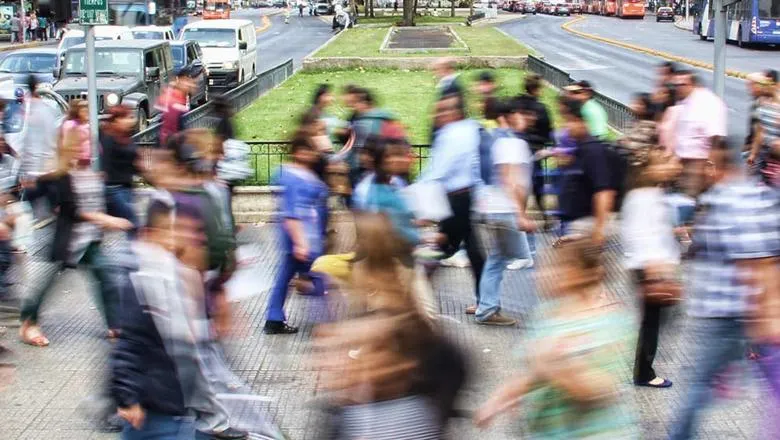“To illustrate the extent of that mismatch, if we assumed that younger generations were going to have consistently worse mental health levels, the average depressive symptomatology levels we observed in the youngest generation, born in 2000-2002, would not have been expected until around 22 years later.”
Dr Darío Moreno-Agostino, lead author
24 January 2023
Generational inequalities in mental health accelerated with the COVID-19 pandemic
Generational inequalities in mental health widened over the course of the UK’s COVID-19 pandemic, according to a new peer-reviewed study published in the journal Psychological Medicine.

Drawing on data from 26,772 people included in five national longitudinal studies, the research finds that in the early stages of the pandemic, core symptoms of depression among adults in their late teens and early twenties were worse than expected even after controlling for pre-existing generational differences in mental health, suggesting an acceleration in these inequalities.
The study is led by researchers from the ESRC Centre for Society and Mental Health at King’s College London and the Centre for Longitudinal Studies at University College London, and is published today in Psychological Medicine.
The researchers also took into account other factors that could explain these differences, including measures of health and socioeconomic position, and psychological distress and life satisfaction collected before the onset of the pandemic.
Dr Moreno-Agostino, the study's lead author from the ESRC Centre for Society and Mental Health said, "Previous evidence had shown that there are age differences in mental health, so we expected those to appear in our results. However, we found that the depressive symptomatology levels in the youngest generation were substantially worse than they should otherwise have been, had the generational gaps remained similar to pre-pandemic times."
The study also shows that generational differences in general anxiety levels expanded throughout the first year of the pandemic compared to its early months, with differences between the younger and older cohorts wider at the end of the study period.
Other generational, sex, and socioeconomic inequalities in multiple mental health outcomes persisted during this period in the UK, with younger adults, women, and people experiencing financial difficulties showing worse levels of mental health.
The results of this research highlight the continued relevance of measures to support the mental health of the most vulnerable groups in the population.
People living in the UK and representative of five different generations were included in the study: the MRC National Survey of Health and Development (born in 1946); the National Child Development Study (born in 1958); the 1970 British Cohort Study (born in 1970); Next Steps ( born in 1989-1990); and the Millennium Cohort Study (born in 2000-2002).
The outcomes under study included brief measures of anxiety and depressive symptomatology, feelings of loneliness, and life satisfaction, which were collected at three different time points: early into the pandemic and during the first UK nationwide lockdown (May 2020), during a period of eased restrictions (September-October 2020), and during the third national lockdown (February-March 2021).
The full research report, authored by Dr Darío Moreno-Agostino, Prof Helen L. Fisher, Prof Stephani L. Hatch, Prof Craig Morgan, Prof George B. Ploubidis, and Dr Jayati Das-Munshi, is published in Psychological Medicine.
The work was supported by the Economic and Social Research Council Centre for Society and Mental health at King’s College London [ES/S012567/1]. For more information, please contact Patrick O'Brien (Senior Media Officer)





